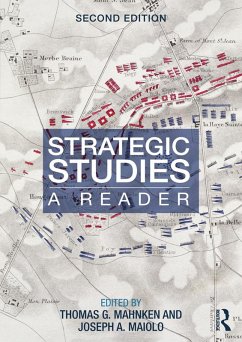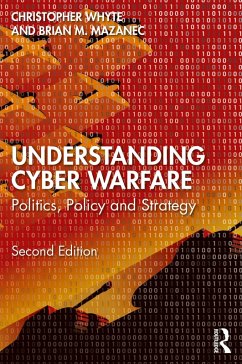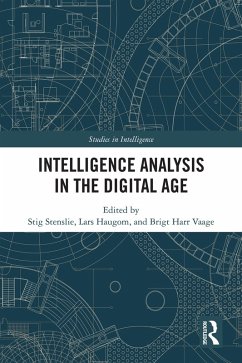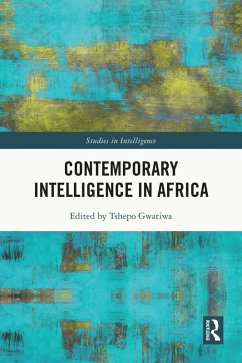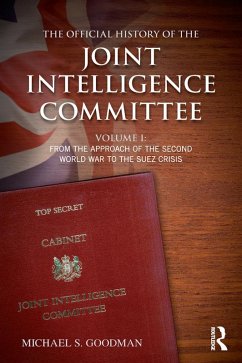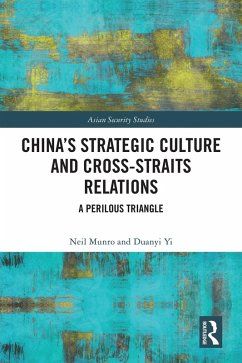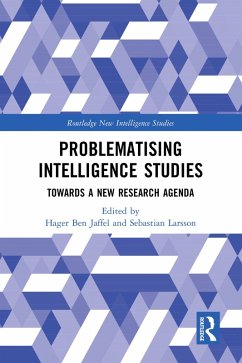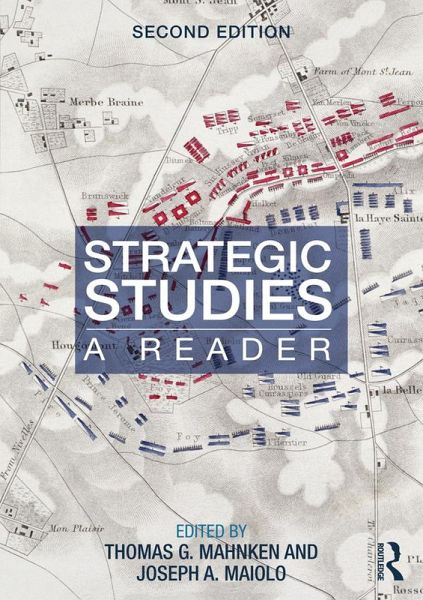
Strategic Studies (eBook, PDF)
A Reader
Redaktion: Mahnken, Thomas; Maiolo, Joseph
Versandkostenfrei!
Sofort per Download lieferbar
70,95 €
inkl. MwSt.
Weitere Ausgaben:

PAYBACK Punkte
35 °P sammeln!
The second edition of Strategic Studies: A Reader brings together key essays on strategic theory by some of the leading contributors to the field. This revised volume contains several new essays and updated introductions to each section.The volume comprises hard-to-find classics in the field as well as the latest scholarship. The aim is to provide students with a wide-ranging survey of the key issues in strategic studies, and to provide an introduction to the main ideas and themes in the field. The book contains six extensive sections, each of which is prefaced by a short introductory essay: ...
The second edition of Strategic Studies: A Reader brings together key essays on strategic theory by some of the leading contributors to the field. This revised volume contains several new essays and updated introductions to each section.
The volume comprises hard-to-find classics in the field as well as the latest scholarship. The aim is to provide students with a wide-ranging survey of the key issues in strategic studies, and to provide an introduction to the main ideas and themes in the field. The book contains six extensive sections, each of which is prefaced by a short introductory essay:
The volume comprises hard-to-find classics in the field as well as the latest scholarship. The aim is to provide students with a wide-ranging survey of the key issues in strategic studies, and to provide an introduction to the main ideas and themes in the field. The book contains six extensive sections, each of which is prefaced by a short introductory essay:
- The Uses of Strategic Theory
- Interpretation of the Classics
- Instruments of War, Intelligence and Deception
- Nuclear Strategy
- Irregular Warfare and Small Wars
- Future Warfare, Future Strategy
Overall, this volume strikes a balance between theoretical works, which seek to discover generalisations about the nature of modern strategy, and case studies, which attempt to ground the study of strategy in the realities of modern war.
This new edition will be essential reading for all students of strategic studies, security studies, military history and war studies, as well as for professional military college students.
Dieser Download kann aus rechtlichen Gründen nur mit Rechnungsadresse in A, B, BG, CY, CZ, D, DK, EW, E, FIN, F, GR, HR, H, IRL, I, LT, L, LR, M, NL, PL, P, R, S, SLO, SK ausgeliefert werden.




